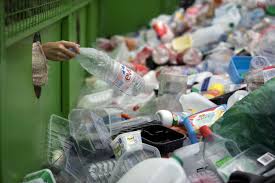Recycle plastics is now an integral part of sustainable residing, but moving the intricacies of reused plastics may be daunting. Here’s a malfunction of all you need to know:
1. Types of Reprocessed Plastics:
Recycled plastics are grouped based upon resin id requirements (RICs), normally located on the bottom of plastic storage containers. Popular sorts consist of Animal (Polyethylene Terephthalate), HDPE (Great-Density Polyethylene), PVC (Polyvinyl Chloride), LDPE (Reduced-Occurrence Polyethylene), PP (Polypropylene), and PS (Polystyrene).
2. Recycling Procedure:
The recycling procedure typically requires selection, searching, cleansing, shredding, melting, and pelletizing. As soon as pellets are established, they may be used to manufacture new items such as bottles, storage units, clothing, as well as furniture.
3. Environment Influence:
Recycling plastics conserves resources, minimizes energy ingestion, and minimizes landfill squander. Even so, it’s essential to note that recycling is not really without its environmental fees, such as travel pollutants and drinking water usage during finalizing.
4. Difficulties:
Contamination, lack of system, and buyer frustration create substantial problems to plastic recycling. Contaminants like food items residue or non-recyclable components can reduce the grade of reused plastics and boost digesting charges.
5. Recycling Emblems:
Understanding recycling icons is crucial for suitable removal. The chasing arrows symbol having a variety inside signifies the resin variety, even though the ♻ sign suggests that the product is recyclable. Nevertheless, not every plastics are recyclable in each and every local community, so it’s essential to verify local rules.
6. Recycled Items:
Recycled plastics are available in a wide range of items, from packaging and textiles to vehicle pieces and building resources. By buying goods made out of recycled plastics, buyers supports the recycling industry and advertise a spherical economy.
7. Improvements:
Breakthroughs in recycle plastic technologies still boost the effectiveness and effectiveness of plastic recycling. From chemical recycling to bio-degradable plastics, ongoing investigation and creativity supply promising solutions to the challenges of plastic waste materials.
In conclusion, understanding re-cycled plastics is important for creating well informed judgements about squander control and sustainability. By reduction of, reusing, and recycling plastics, folks can play a role in a more healthy planet for generations to come.
